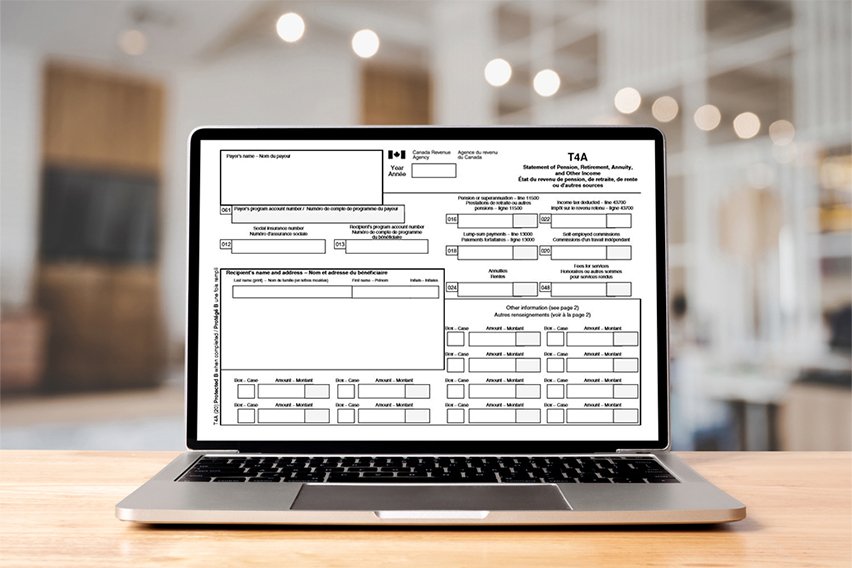What Is Financial Modelling?

One of the first things you should consider when starting your own business is how you can build a sustainable financial future.
You have to consider things such as how to build a financial structure, how to get a hold of funding, and how to make sure you have a sustainable cash flow.
To make sure you find the answers to these questions, it’s vital that you have what’s called a financial model.
But what exactly is a financial model? We’ll take a closer look at what a financial model is, and the importance of building a solid one for your business.
Here’s What We’ll Cover:
What Is a Financial Model Used For?
Why Is Financial Modelling Important?
Why Are Financial Models Important for New Businesses?
What Skills Do You Need to Create a Financial Model?
What Are the Best Tips to Follow When Creating a Financial Model?
What Is a Financial Model?
Financial modelling is one of the business world’s mathematical models. It is the process of creating a breakdown of a company’s expenses and earnings. This would tend to be in the form of a spreadsheet. They are utilized as a decision-making tool and can be used to calculate the financial impact of a future event or decision on your business.
It is seen as a representation of a company’s operations in the past, present and future.
A financial model will show a forecast of a business’ financial performance. This forecast tends to be based on the business’ historical performance. It also takes into account other various assumptions about the future performance.

It is a three-statement model that gets information from the following areas:
- An income statement
- A balance sheet
- A cash flow statement
- Supporting schedules
With the information provided by these financial statements, financial models can create forecasts. These can give great insight into the financial future of a company.
What Is a Financial Model Used For?
A financial model has a wide variety of uses in business and investment banking. It can be used by financial analysts to anticipate how the company stock is performing or it’s sales growth. It can also be used by executives to carry out a company analysis or company valuations.
It can also be used to make decisions about:
- How to raise extra capital
- Making business acquisitions such as other businesses or current assets
- Selling or divesting business assets
- Budgeting
- Financial forecasting
- Valuing the business
- Growing the business organically
- Deciding where to allocate capital
- Financial analysis
- Management accounting
Why Is Financial Modelling Important?
When a business creates a financial model, it’s designed to depict a real-life situation in numbers. This is with the intent of making it easier for business owners to make important financial decisions.
Financial models help whenever there are any financial problems that need solving, analyzing or translating into a numerical format. When tackling a complex problem, it is much easier and clearer to break it down into numbers and figures.
For example, a well-constructed financial model can help investors to decide which project to invest their money in. Or it may help an executive decide which business it would make sense to acquire.
Why Are Financial Models Important for New Businesses?
There are a number of reasons as to why financial models are so important for people who are starting up a business.
Almost every company performs some form of financial planning or budgeting. But there are precise reasons why a financial plan is so important for startups specifically. Some of these reasons include:
1. To Prove You Are Economically Viable
When you’re creating a business plan, it’s important to include your financial plan. This would be the money needed to set up your business, but also a forecast on how you expect to perform over a certain time period.
Quantifying and validating your business with financial models helps you to prove that you can turn your business into a sustainable operation.
2. To Prepare You For the Future
When creating a financial model, there are a number of scenarios and assumptions that you need to take into account. By considering and planning for these different scenarios, you are able to be better prepared for the future.
This is especially important if things don’t go the way that you had originally planned. Because you’ve already considered the future possibilities, you’ll be more prepared if things go wrong.
Putting thought towards a worst-case scenario helps you to anticipate how the cash flow analysis, profitability and funding needs of your business will shift and change.
3. In Order to Raise Funds
A financial model is a vital component of the fundraising process. Any potential financier or investor will most likely ask for a financial plan before they put down any capital.
Some may ask for a highly detailed model, while others may be satisfied with a basic proposal. But in both cases, you need to be able to show that you are a safe investment.
Creating a model also helps you to figure out exactly how much capital your business will need in order to find success.
4. To Inform Shareholders
The information that you can collect from financial models can be used to update your shareholders on how the business is performing. It also shows how you are spending their money.
Creating a financial model also allows you to create targets and goals for your business. This is a healthy way to keep pushing your business towards success.
What Skills Do You Need to Create a Financial Model?
Building a financial model isn’t an easy task, but the outcome can be hugely beneficial. It’s imperative that the model you build is created properly so that the results it gives out are accurate and dependable.
To create a successful financial model, you need a set of necessary skills. Some of the most important skills necessary to build your own financial model are as follows:
1. A Good Understanding of Accounting
Most financial models are made as a purely financial document. It will be built using the financial numbers from a business or market and it has to stick to a set of accounting rules.
There is a specific set of accounting rules as laid out in the Canada GAAP. These rules help to maintain consistency in the presentation of financial facts and events.
It is therefore important that you not only know, but understand these rules. This is so that you can maintain accuracy and quality as well as not create something that can mislead investors.
2. Excel Skills
Most financial models exist in the form of a spreadsheet. Therefore, knowing and understanding spreadsheet software such as MS Excel is incredibly useful.
By using all that spreadsheet software has to offer, you can create a range of complex calculations that can simplify your financial information and make it more digestible.
It also makes it far easier to change and update the information on your spreadsheet. This is without having to recalculate every equation.
3. Forecasting Skills
Financial modelling utilizes a lot of assumptions and general financial forecasting. The purpose of a financial model is to arrive at an understanding of a potential future scenario of the financial health of your business.
Forecasting skills and using reasonable assumptions are vital in this process. The ability to accurately predict the numbers will give an investor or analyst a good idea of how potentially attractive the company may be. This would be calculated over a certain period of time.
Having good forecasting skills will therefore increase the accuracy and dependability of your model.
4. Good Presentation
There’s no use being able to create an accurate financial model if it’s incomprehensible to anybody but you. Financial modelling is full of small details, numbers and complex formulas and can be quite hard to decipher.
That’s why it’s so important to be able to layout your financial model in a way that is easy to understand, and simple to digest.

What Are the Best Tips to Follow When Creating a Financial Model?
Financial models are important documents that will be utilized by a number of different entities. This is why it’s important to get yours right. So we’ve put together a small list of the best tips to follow when creating your financial models so that you can get the message across.
Make It Flexible
Your financial model should be flexible in its scope. It should be easily adaptable to fit every situation as your business grows and changes.
It is a common occurrence that your financial situation will move and shift in time. Therefore you should make your financial model easy to modify whenever necessary.
Make It Appropriate
When you’re creating a financial model, there shouldn’t be a large excess of cluttering details. It’s easy to get carried away in the complexities related to calculating your model. But you shouldn’t forget that a good model is a clear representation of reality. It should be easy to read, easy to digest and easy to understand by anyone.
Structure It Logically
The logical structure of your financial model is integral. It should follow a simple and logical path that gets you to the end goal of understanding the financial forecast.
It should also be made in a way that can be easily kept by any future workers. Put simply, it should make sense to everyone else, not just you.
Make It Transparent
Transparency is important when you’re relaying important financial information. It should be able to be easily understood by anyone who needs to read it, and there should be little to no room for any form of misinterpretation.
Regularly Check Your Accuracy
As your financial model grows over time, it can become more difficult for any analyst to check on the accuracy of the entire piece. This means that accuracy checks should be a regular part of working on your model.
Every time you add new information, make sure that you have checked and double-checked the accuracy of the information being added. It can save a huge amount of time further down the line.
Key Takeaways
The financial ins and outs of business models are complex and can be daunting for a new business owner.
But in order to build a financially stable business, it’s vital that you create a financial model that suits both you and your future business. But while it’s important to make something that makes sense to you, it should also make sense to anyone who will be relying on the information.
Are you looking for more business advice on everything from starting a new business to new business practices?
Then check out the FreshBooks Resource Hub.
RELATED ARTICLES

 What Is a Credit Card Chargeback & How to Dispute It?
What Is a Credit Card Chargeback & How to Dispute It? What Is a POS Purchase? A Definitive Guide
What Is a POS Purchase? A Definitive Guide A Guide to Break-Even Analysis & How to Calculate It
A Guide to Break-Even Analysis & How to Calculate It T4 vs T4A Tax Form: What’s the Difference?
T4 vs T4A Tax Form: What’s the Difference? What Is a Financial Management System?
What Is a Financial Management System? What are Pro Forma Financial Statements?
What are Pro Forma Financial Statements?